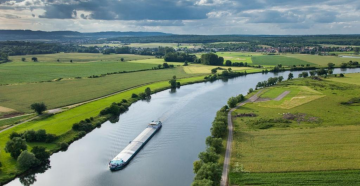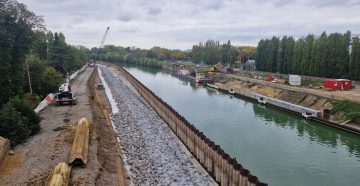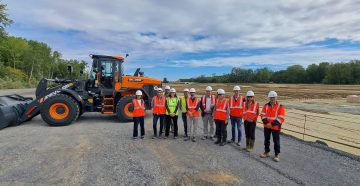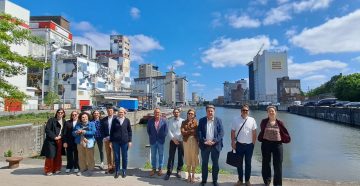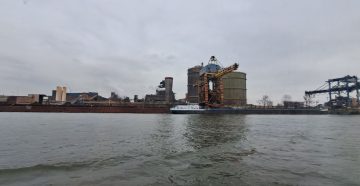Seine-Scheldt aims to be a competitive waterway network, ready to accommodate new technologies suitable for the reduction of greenhouse gas emissions from the inland waterway sector. In accordance with the Seine-Scheldt Implementing Act of June 27, 2019, a strategic framework needs to be developed to promote the deployment of infrastructure compatible with alternative fuels throughout the Seine-Scheldt network by December 2030.
To meet this objective, the Seine-Scheldt EEIG has set up a working group dedicated to alternative fuels, bringing together experts from the network’s member operators (DVW, VNF, SPW, SCSNE). This working group is tasked with identifying and proposing the conditions and procedures that will enable the network to remain competitive over the long term, and to ensure that the alternative fuels currently being developed (battery-powered electric propulsion systems, liquefied natural gas, hydrogen, methanol, etc.) can be used by users on its perimeter in the coming decades.
Supported by specialist consultants, the members of the working group are currently carrying out a study designed to define a framework for the creation of infrastructures compatible with alternative fuels throughout the Seine-Scheldt network. After presenting an inventory of existing solutions in Tournai (Wallonia) at the end of April, they visited the Port of Rotterdam (Netherlands) on July 3 to share their knowledge of sustainable transport technologies in France and Belgium with that of Europe’s largest seaport (42 km long).

During the morning, they had the opportunity to exchange views with the Port of Rotterdam’s management representatives, who presented their operations and the Port’s ambitious policy on energy transition and innovation.
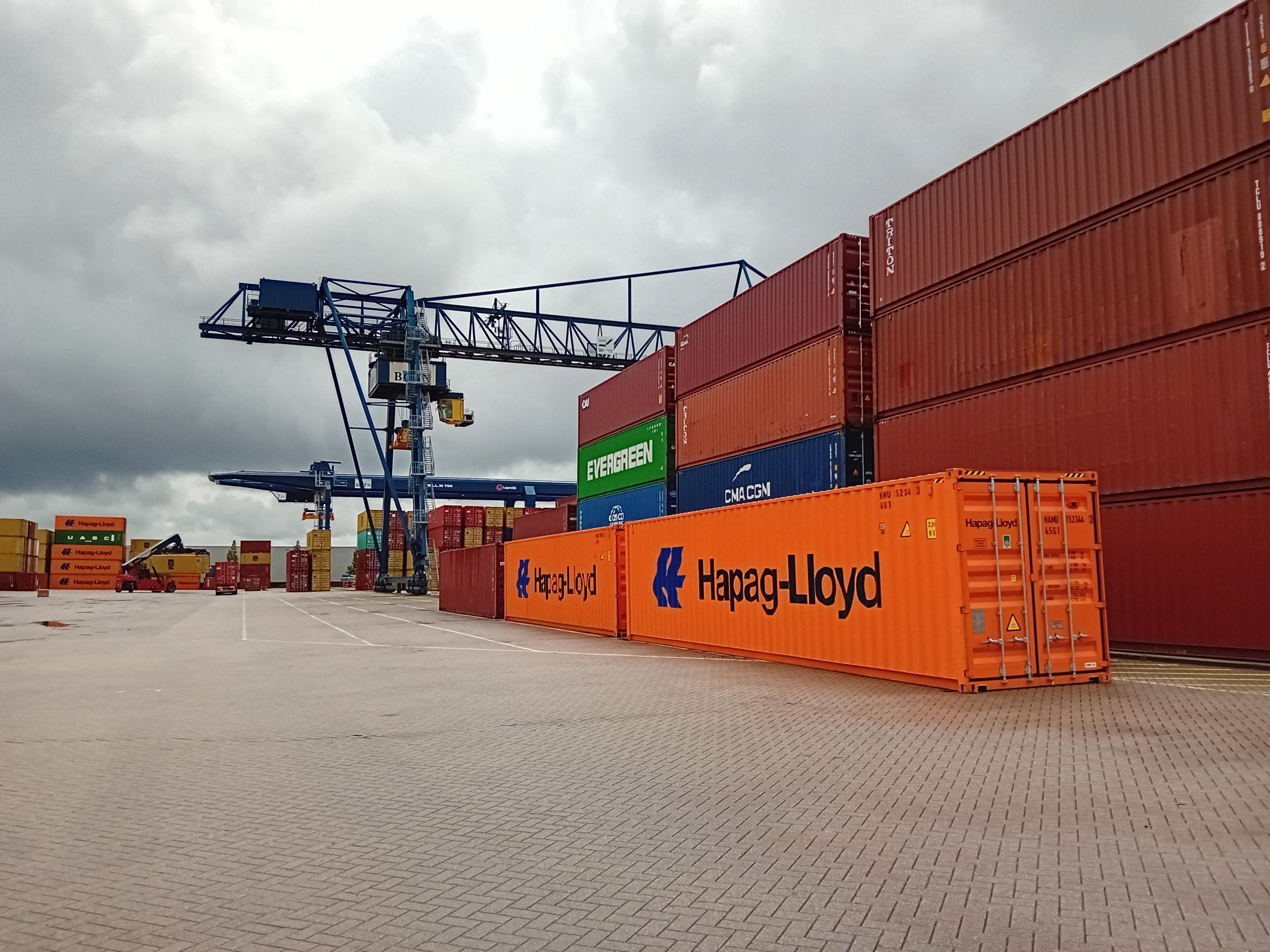
In the afternoon, they visited several of the Port’s sites, in particular the Alblasserdam logistics terminal operated by BCTN, the country’s largest inland waterway transport operator, with numerous sites and daily flows to and from the ports of Rotterdam, Antwerp and Zeebrugge. One of the site’s strong points is its equipment technology: container transfers on site are carried out by electric vehicles, with a range of over 24 hours. Several charging stations ensure seamless service continuity.
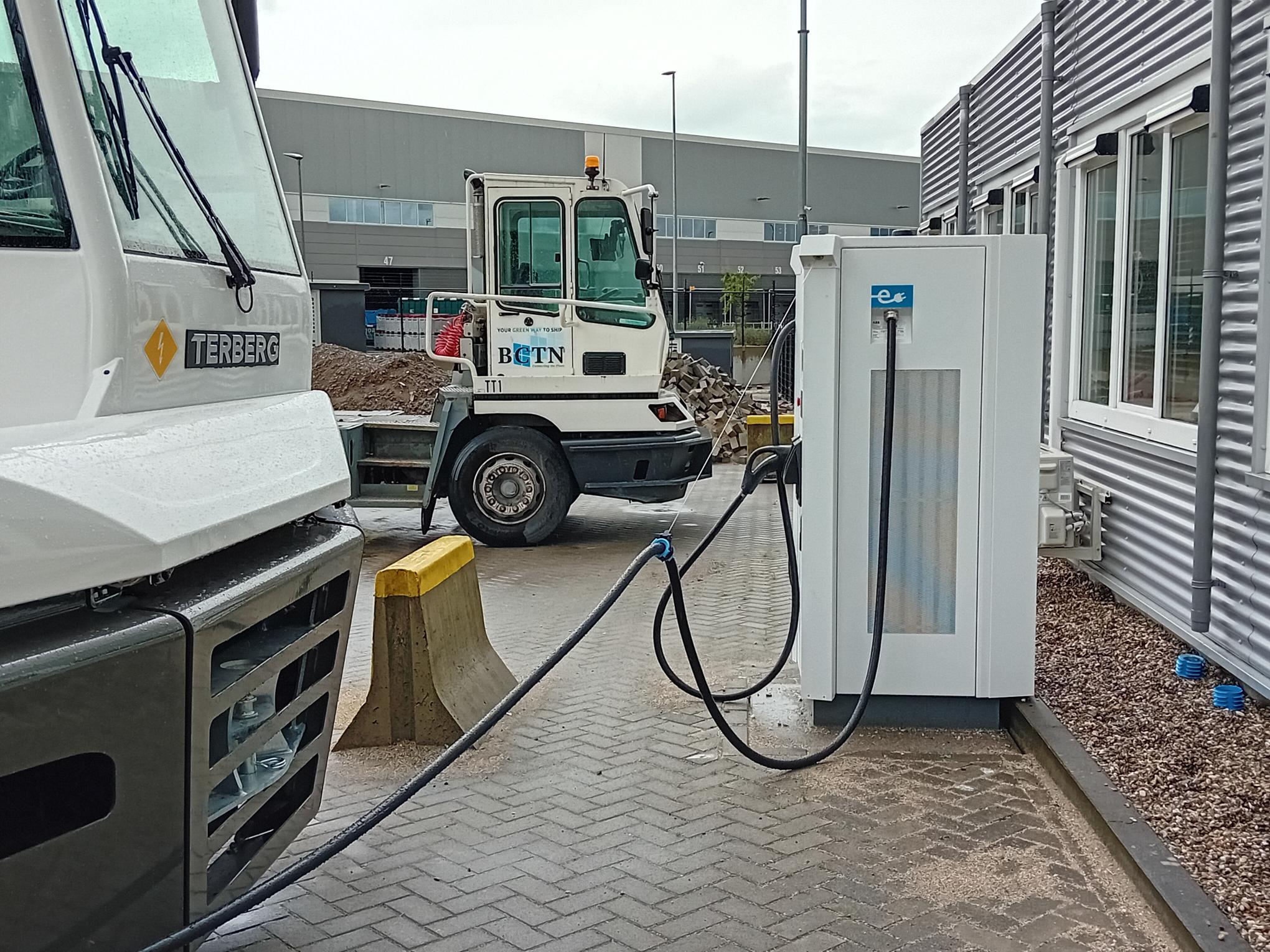
The application of an alternative to fuel oil was also observed on a hydrogen-powered barge, whose containers were loaded on site.
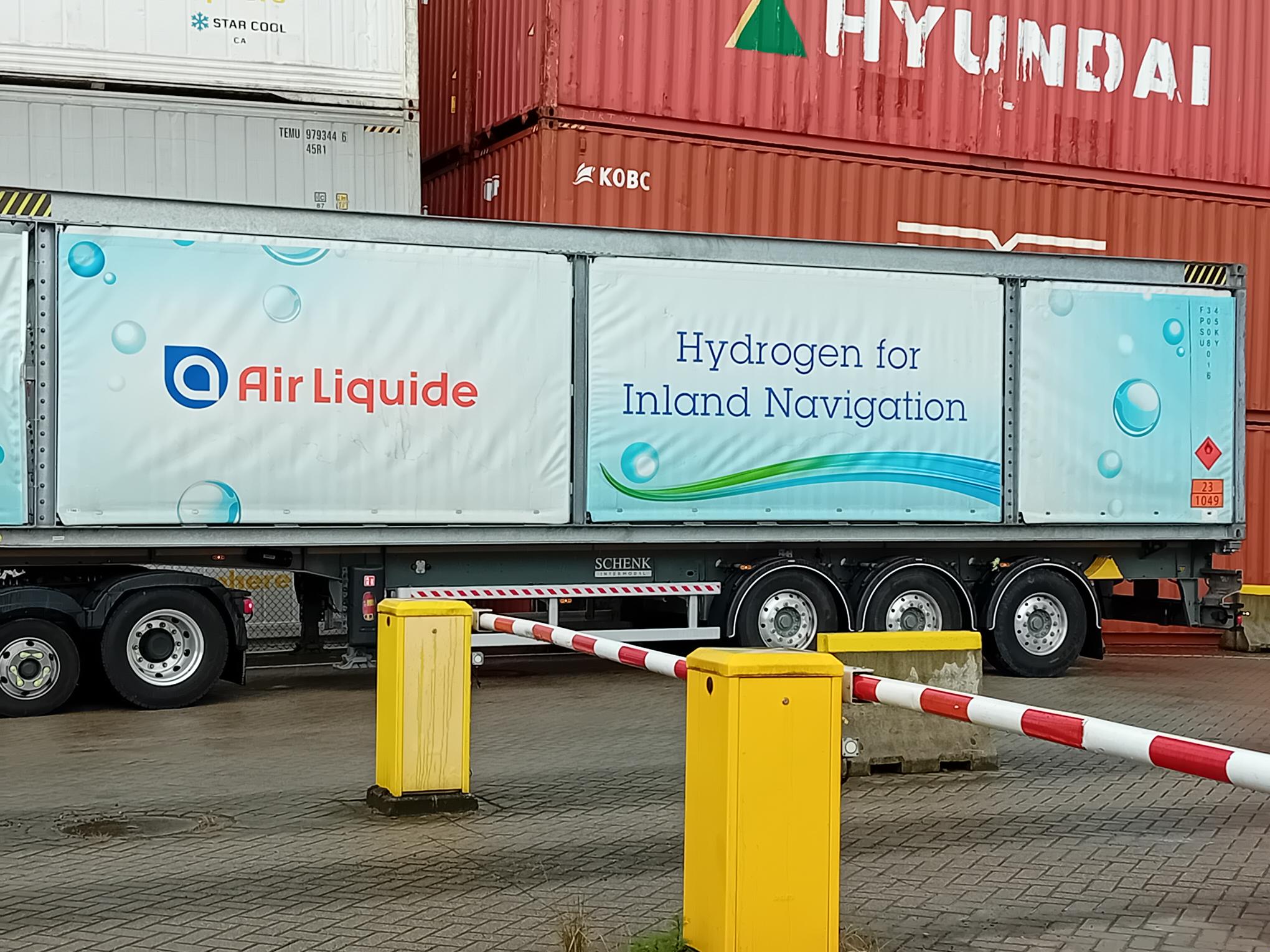
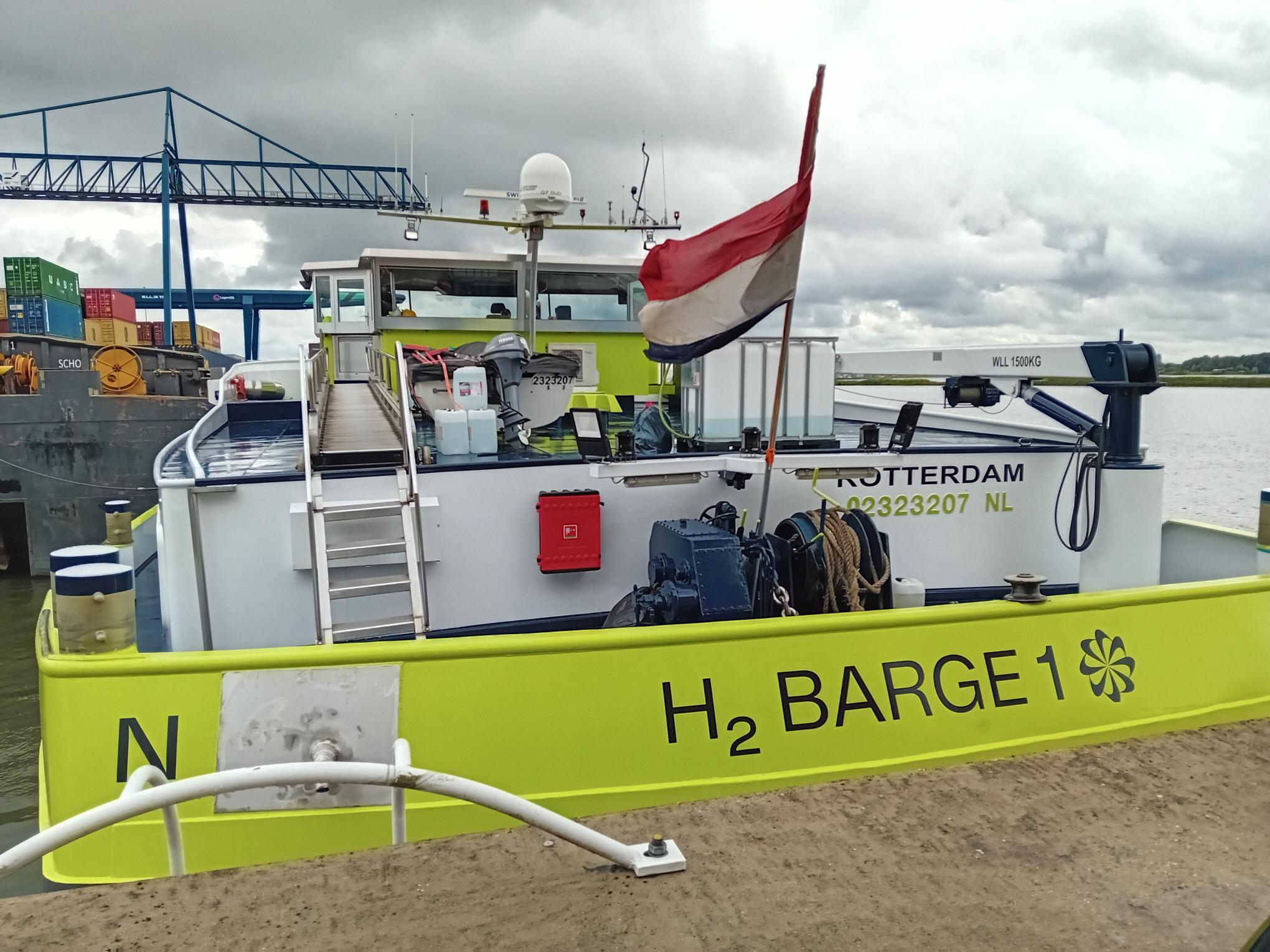
During the day, the members of the working group were able to see a fine example of a sustainable port facility connected to a wide-area river network.

